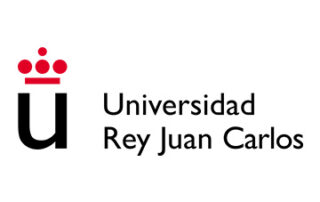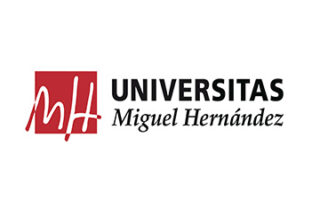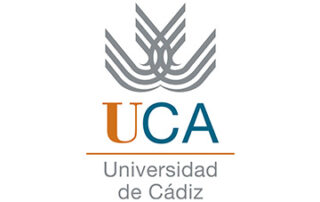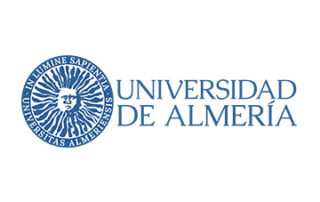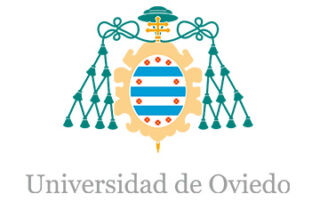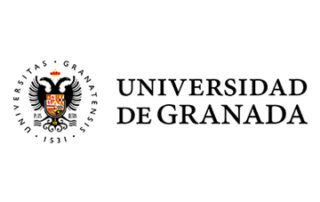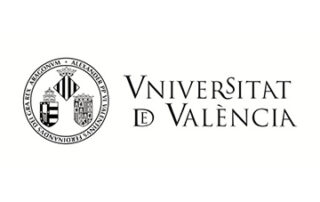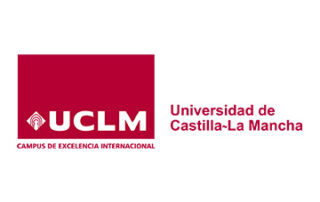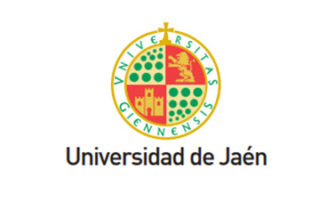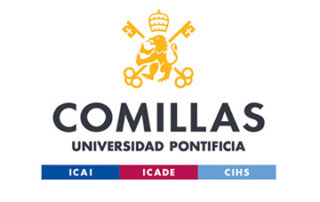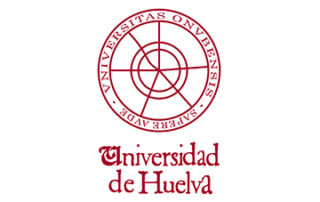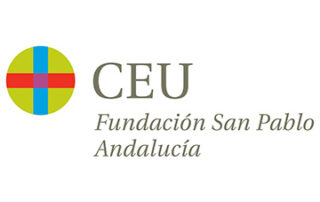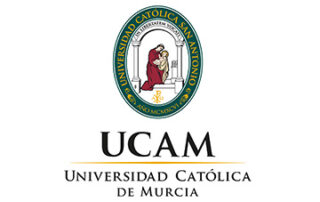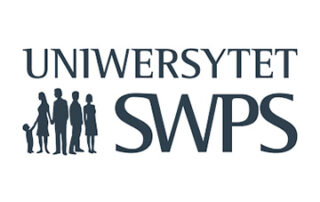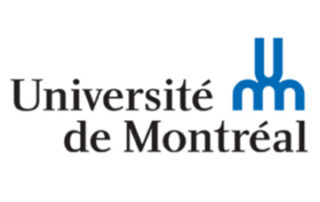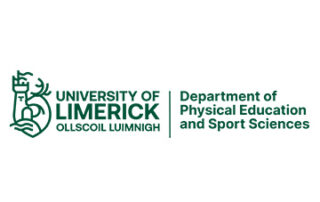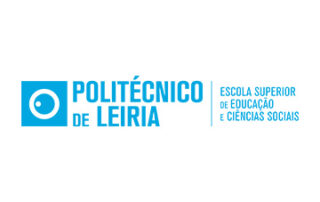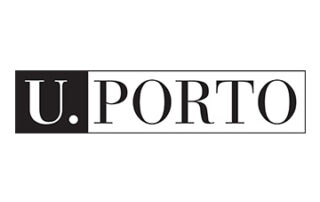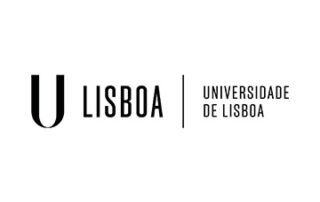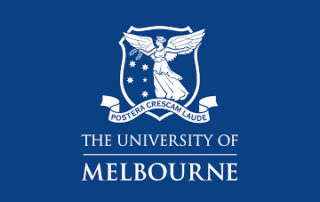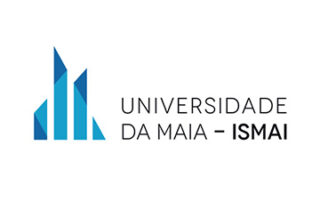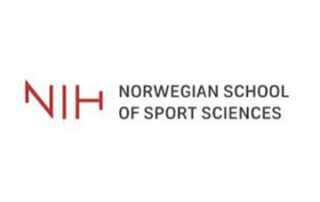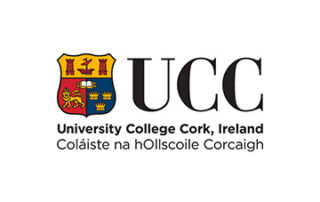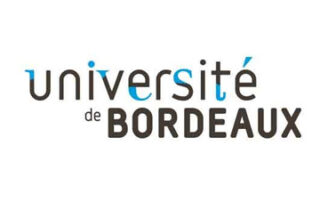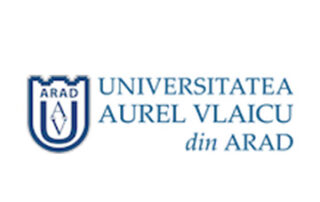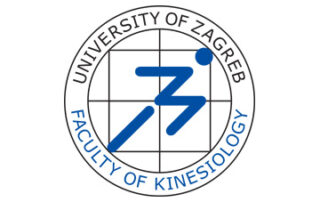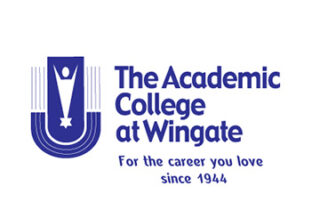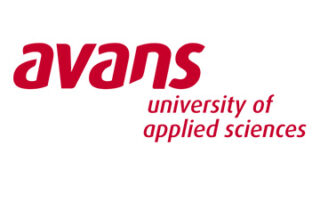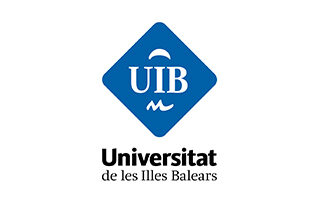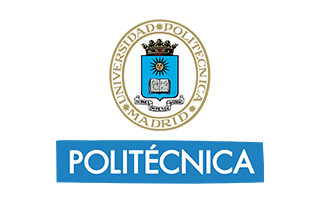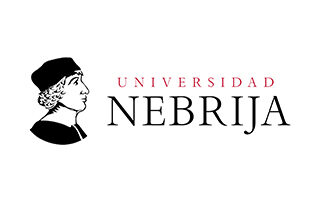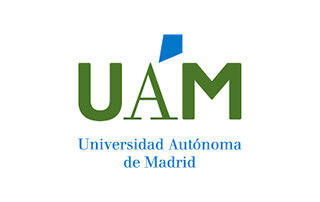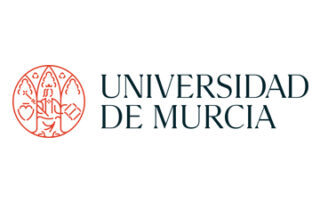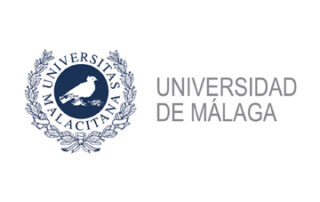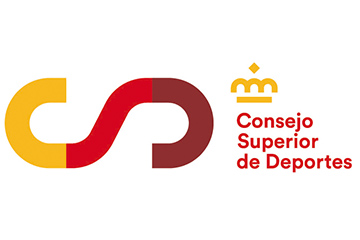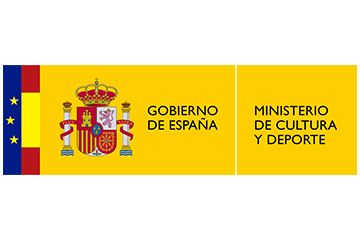Investigación
La Red internacional de investigación en Educación Física y Promoción de Hábitos Saludables trabaja fundamentalmente en tres líneas de investigación.
1.
Implementación de modelos pedagógicos en Educación Física
2.
Intervención docente y variables motivacionales para el desarrollo de experiencias positivas en las clases de Educación Física
3.
Desarrollo de intervenciones escolares para la promoción de hábitos saludables
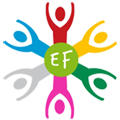 Artículos y Publicaciones
Artículos y Publicaciones
López-Lemus, I., Del Villar, F., Gil-Arias, A., & Moreno-Domínguez, A. (2023).
Equidad de género y motivación en Educación Física: ¿podría ayudarnos la hibridación de modelos pedagógicos?. Movimento, e29032-e29032.
https://doi.org/10.22456/1982-8918.128080
Seldas, M., & García López, L. M. (2023).
Benefits of hybridising the activist approach and teaching games for understanding to empower girls in physical education. Curriculum Studies in Health and Physical Education, 1-17.
https://doi.org/10.1080/25742981.2023.2265351
Garcia-Gonzalez, L., Santed, M., Escolano-Perez, E., & Fernandez-Río, J. (2023).
High- versus Low-structured cooperative learning in secondary physical education: impact on prosocial behaviours at different ages. European Physical Education Review, 29(2), 199-214.
https://doi.org/10.1177/1356336X221132767
Gutiérrez, D., García-López, L. M., Hastie, P. A., & Segovia, Y. (2022).
Adoption and fidelity of Sport Education in Spanish schools. European Physical Education Review, 28(1), 244-262.
https://doi.org/10.1177/1356336X211036066
Gil-Arias, A., Harvey, S., Morante, Ó. M., Claver, F., & Fernández-Río, J. (2022).
Teacher and Student’s Perspectives on Their Experiences Within Hybrid Sport Education-Cooperative Learning Pedagogical Model Units in Elementary Physical Education. Journal of Teaching in Physical Education, 42(3), 452–460.
https://doi.org/10.1123/jtpe.2021-0304
Morales-Belando, M. T., Kirk, D., & Arias-Estero, J. L. (2022).
A systematic review of teaching games for understanding intervention studies from a practice-referenced perspective. Research Quarterly for Exercise and Sport, 93(4), 670-681.
https://doi.org/10.1080/02701367.2021.1897066
Fernandez-Rio, J., & Iglesias, D. (2022).
What do we know about pedagogical models in physical education so far? An umbrella review. Physical Education and Sport Pedagogy.
https://doi.org/10.1080/17408989.2022.2039615
Evangelio, C., González-Víllora, S., Fernandez-Rio, J., & Peiró-Velert, C. (2022).
Students’ perceptions on three-way pedagogical models hybridization: contributing to the development of active identities. Sport, Education and Society, 27(6), 717-731.
https://doi.org/10.1080/13573322.2021.1907327
Gil-Arias, A., Claver, F., Práxedes, A., Del Villar, F., & Harvey, S. (2020).
Autonomy support, motivational climate, enjoyment and perceived competence in physical education: Impact of a hybrid teaching games for understanding/sport education unit. European Physical Education Review, 26(1), 36-53.
https://journals.sagepub.com/doi/abs/10.1177/1356336X18816997
Carriedo, A., Fernandez-Río, J., Mendez-Gimenez, A. y Cecchini, J. (2020).
Test de condición física: modelo tradicional versus modelo de educación deportiva. Revista Internacional de Medicina y Ciencias de la Actividad Física y del Deporte. En prensa.
http://cdeporte.rediris.es/revista/inpress/arttest1326.pdf
Peiró-Velert, C., Pérez-Gimeno, E., & Valencia-Peris, A. (2012).
Facilitación de la autonomía en el alumnado dentro de un modelo pedagógico de educación física y salud. Tándem: Didàctica de la Educación Física, 40, 28-44.
https://www.grao.com/es/producto/facilitacion-de-la-autonomia-en-el-alumnado-dentro-de-un-modelo-pedagogico-de-educacion-fisica-y-salud
Meroño, L., Calderón, A., & Arias-Estero, J. L. (2021).
Digital pedagogy and cooperative learning: Effect on the technological pedagogical content knowledge and academic performance of pre-service teachers. Revista de Psicodidáctica. En prensa.
https://doi.org/10.1016/j.psicoe.2020.10.002
Pozo, P., Grao-Cruces, A., & Pérez-Ordás, R. (2018).
Teaching personal and social responsibility model-based programmes in physical education: A systematic review. European Physical Education Review, 24(1), 56–75.
https://doi.org/10.1177/1356336X16664749.
Fernández-Espínola, C., Abad, M. T., Collado-Mateo, D., Almagro, B. J., Castillo, E., y Giménez, F. J. (2020).
Effects of cooperative-learning interventions on Physical Education students’ intrinsic motivation: A systematic review and meta-analysis. International Journal of Environmental Research and Public Health, 17, 4451.
https://doi.org/10.3390/ijerph17124451
García-López, L. M., Gutiérrez, D., Sánchez-Mora, D., & Harvey, S. (2019).
Teachers’ use of teaching games for understanding in Central Spain. Physical Education and Sport Pedagogy, 24(5), 463-477.
https://doi.org/10.1080/17408989.2019.1628931
García-González, L., Abós, A., Diloy-Peña, S., Gil-Arias, A. y Sevil-Serrano, J. (2020).
Can a Hybrid Sport Education/Teaching Games for Understanding Volleyball Unit Be More Effective in Less Motivated Students? An Examination into a Set of Motivation-Related Variables. Sustainability, 12, 6170.
https://doi.org/10.3390/su12156170
Morgan, K., Bryant. A., Edwards, L., & Mitchell-Williams, E. (2018).
Transferring primary generalists’ positive classroom pedagogy to the physical education setting: A collaborative PE-CPD process. Physical Education and Sport Pedagogy. 24(1), 43-58.
https://doi.org/10.1080/17408989.2018.1533543
Bessa, C., Hastie, P., Araújo, R., & Mesquita, I. (2019).
What Do We Know About the Development of Personal and Social Skills within the Sport Education Model: A Systematic Review. Journal of Sports Science and Medicine 18, 812-829.
https://www.jssm.org/volume18/iss4/cap/jssm-18-812.pdf
Hordvik, M., Fletcher, T., Haugen, A., Engebretsen, B., & Møller, L. (2020).
A collaborative approach to teaching about teaching models-based practice: Developing coherence in one PETE module. Physical Education and Sport Pedagogy, 1-15.
https://doi.org/10.1080/17408989.2020.1812558
Legrain, P., & Escalie, G., & Chaliès, S. (2019).
Cooperative learning: A relevant instructional model for physical education pre-service teacher training. Physical Education and Sport Pedagogy, 24, 73-86.
https://doi.org/10.1080/17408989.2018.1561838
Harvey, S., Cushion, C & Sammon, P. (2015)
Dilemmas faced by pre-service teachers when learning about and implementing a game-centred approach. European Physical Education Review, 21 (2), pp.238-256.
https://doi.org/10.1177/1356336X14560773
Casey, A., MacPhail, A., Larsson, H. & Quennerstedt, M. (2021)
Between hope and happening: Problematizing the M and the P in models-based practice, Physical Education and Sport Pedagogy, 26: 2, 111-122.
https://doi.org/10.1080/17408989.2020.1789576
Is high teacher directiveness always negative? Associations with students’ motivational outcomes in physical education. Teaching and Teacher Education, 132, 104216.
https://doi.org/10.1016/j.tate.2023.104216
Leo, F. M., López-Gajardo, M. A., Rodríguez-González, P., Pulido, J. J., & Fernández-Río, J. (2023).
How class cohesion and teachers’ relatedness supportive/thwarting style relate to students’ relatedness, motivation, and positive and negative outcomes in physical education. Psychology of sport and exercise, 65, 102360.
https://doi.org/10.1016/j.psychsport.2022.102360
Fierro-Suero, S., Saénz-López, P., Carmona-Márquez, J., y Almagro, B. J., (2023).
Achievement emotions, intention to be physically active, and academic achievement in physical education: Gender differences. Journal of Teaching in Physical Education, 42, 114-122.
https://doi.org/10.1123/jtpe.2021-0230
González-Cutre, D., Brugarolas-Navarro, M., Beltrán-Carrillo, V. J., & Jiménez-Loaisa, A. (2023).
The frustration of novelty and basic psychological needs as predictors of maladaptive outcomes in physical education. Physical Education and Sport Pedagogy.
https://doi.org/10.1080/17408989.2023.2167969
Baños, R., Calleja-Núñez, J. J., Espinoza-Gutiérrez, R., & Granero-Gallegos, A. (2023).
Mediation of academic self-efficacy between emotional intelligence and academic engagement in Physical Education undergraduate students. Frontiers in Psychology, 14.
https://doi.org/10.3389/fpsyg.2023.1178500
Fierro-Suero, S., Castillo, I., Almagro, B. J., y Saénz-López, P. (2023).
The role of motivation and emotions in physical education: understanding academic achievement and the intention to be physically active. Frontiers in Psychology, 14.
https://doi.org/10.3389/fpsyg.2023.1253043
Burgueño, R., Abós, A., García-González, L. y Sevil, S. (2022).
Students’ motivational experiences across profiles of perceived need-supportive and need-thwarting teaching behaviors in physical education. Physical Education and Sport Pedagogy.
https://doi.org/10.1080/17408989.2022.2028757
Peiró-Velert, C., García-Massó, X., Pérez-Gimeno, E., Lizandra, J., Valencia-Peris, A., & Devís-Devís, J. (2022).
Capturing the multidimensionality of motivation in physical education: A self-organizing maps approach to profiling students. European Physical Education Review, 28(4), 852-872.
https://doi.org/10.1177/1356336X221088396
Ferriz, R., Jiménez-Loaisa, A., González-Cutre, D., Romero-Elías, M., & Beltrán-Carrillo, V. J. (2021).
A self-determined exploration of adolescents’ and parents’ experiences derived from a multidimensional school-based physical activity intervention. Journal of Teaching in Physical Education, 41(1), 68-77.
https://journals.humankinetics.com/view/journals/jtpe/41/1/article-p68.xml
García-González, L., Sevil, J., Abós, A., Aelterman, N. y Haerens, L. (2019).
The role of task and ego-oriented climate in explaining students’ bright and dark motivational experiences in Physical Education. Physical Education and Sport Pedagogy, 24(4), 344-358.
https://doi.org/10.1080/17408989.2019.1592145
Sánchez-Oliva, D., Pulido-González, J. J., Leo, F. M., González-Ponce, I., & García-Calvo, T. (2017).
Effects of an intervention with teachers in the physical education context: A Self-Determination Theory approach. PloS One, 12, e0189986.
https://doi.org/10.1371/journal.pone.0189986
Baena-Extremera, A. y Granero-Gallegos, A (2015).
Modelo de predicción de la satisfacción con la educación física y la escuela. Revista de Psicodidáctica, 20(1), 177-192.
https://www.redalyc.org/pdf/175/17532968010.pdf
Lizandra, J. & Peiró-Velert, C. (2020).
Las relaciones sociales y su papel en la motivación hacia la práctica de actividad física en adolescentes: Un enfoque cualitativo. Retos: Nuevas tendencias en educación física, deporte y recreación, 37(1), 41-47.
https://doi.org/10.47197/retos.v37i37.70374
Leyton-Román, M., Núñez, J. L., & Jiménez-Castuera, R. (2020).
The Importance of Supporting Student Autonomy in Physical Education Classes to Improve Intention to Be Physically Active. Sustainability, 12(10), 4251.
https://doi.org/10.3390/su12104251
Cecchini, J. A., Sánchez-Martínez, B., Mendez-Giménez, A. y Fernandez-Río, J. (2019).
Repercusiones de las competiciones deportivas escolares en el clima motivacional, la competencia percibida la motivación intrínseca y el esfuerzo. Revista de Psicología del Deporte, 28(2), 13-22
https://ddd.uab.cat/pub/revpsidep/revpsidep_a2019v28n2/revpsidep_a2019v28n2p13.pdf
Beltrán-Carrillo, V.J. y Devís-Devís, J. (2019).
El pensamiento del alumnado inactivo sobre sus experiencias negativas en educación física: los discursos del rendimiento, salutismo y masculinidad hegemónica. RICYDE. Revista Internacional de Ciencias del Deporte, 15(55), 20-34.
https://www.cafyd.com/REVISTA/ojs/index.php/ricyde/article/view/1528
Ruiz-Ariza, A., Suárez-Manzano, S., López-Serrano, S., & Martínez-López, E. J. (2019).
The effect of cooperative high-intensity interval training on creativity and emotional intelligence in secondary school: A randomised controlled trial. European Physical Education Review, 25(2), 355–373.
https://journals.sagepub.com/doi/full/10.1177/1356336X17739271
Grao-Cruces, A., Racero-García, A., Sánchez-Oliva, D., Blanco-Luengo, D., Nuviala, A., & García-Calvo, T. (2020).
Associations between weight status and situational motivation toward fitness testing in physical education: The mediator role of physical fitness. International Journal of Environmental Research and Public Health, 17(13), 4821.
http://dx.doi.org/10.3390/ijerph17134821.
Fierro-Suero, S., Almagro, B. J., Castillo, I., y Sáenz-López, P. (2020).
Herramienta de Observación del Clima Interpersonal Motivacional (OCIM) para docentes de Educación Física. Cultura, Ciencia y Deporte, 15(46), 575-596.
https://ccd.ucam.edu/index.php/revista/article/view/1647
Franco, E., Coterón, J., Huéscar, E., & Moreno-Murcia, J. A. (2020).
A person-centered approach in physical education to better understand low-motivation students. Journal of Teaching in Physical Education, 39(1), 91-101.
https://doi.org/https://doi.org/10.1123/jtpe.2019-0028
González-Cutre, D. (2017).
Estrategias didácticas y motivacionales en las clases de educación física desde la teoría de la autodeterminación. E-Motion: Revista de Educación, Motricidad e Investigación, 8, 44-62.
http://rabida.uhu.es/dspace/bitstream/handle/10272/14277/Estrategiaspdf?sequence=2
Rodrigues, F., Monteiro, D., Teixeira, D., & Cid, L. (2020)
Understanding motivational climates in physical education classes: How students perceive learning and performance-oriented climates by teachers and peers. Current Psychology.
https://doi.org/10.1007/s12144-020-01047-x
Bartholomew, K. J., Ntoumanis, N., Mouratidis, A., Katartzi, E., Thøgersen-Ntoumani, C., & Vlachopouloos, S. (2018)
Beware of your teaching style: A school-year long investigation of controlling teaching and student motivational experiences. Learning and Instruction, 53, 50-63.
https://doi.org/10.1016/j.learninstruc.2017.07.006
Boonekamp, G. M., Dierx, J. A., & Jansen, E. (2020)
Motivating students for physical activity: What can we learn from student perspectives? European Physical Education Review.
https://doi.org/10.1177/1356336X20970215
Haerens, L., Vansteenkiste, M., De Meester, A., Delrue, J., Tallir, I., Van de Broek, G., Goris, W., Aelterman, N. (2018)
Different Combinations of Perceived Autonomy Support and Control : Identifying the Most Optimal Motivating Style. Physical Education and Sport Pedagogy 23 (1), 16–36.
https://doi.org/10.1080/17408989.2017.1346070
Muntaner-Mas, A., Morales, J. S., Martínez-de-Quel, Ó., Lubans, D. R., & García-Hermoso, A. (2023).
Acute effect of physical activity on academic outcomes in school-aged youth: A systematic review and multivariate meta-analysis. Scandinavian journal of medicine & science in sports.
https://doi.org/10.1111/sms.14479
Sánchez-Oliva, D., Leech, R. M., Esteban-Cornejo, I., Cristi-Montero, C., Pérez-Bey, A., Cabanas-Sánchez, V., Grao-Cruces, A., & Castro-Piñero, J. (2023).
Sedentary behavior profiles and longitudinal associations with academic performance in youth: The UP&DOWN study. Journal of Sports Sciences, 41(2), 181-189.
https://doi.org/10.1080/02640414.2023.2204584
Rocliffe, P., O’Keeffe, B., Walsh, L., Stylianou, M., Woodforde, J., García-González, L., O’Brien, W., Coppinger, T., Sherwin, I., Mannix-McNamara, P., & MacDonncha, C. (2023).
The impact of typical school provision of Physical Education, physical activity and sports on adolescent physical activity behaviors: a systematic literature review. Adolescent Research Review.
https://doi.org/10.1007/s40894-022-00200-w
Tapia-Serrano, M. A., Sevil-Serrano, J., Sánchez-Oliva, D., Vaquero-Solís, M., & Sánchez-Miguel, P. A. (2022).
Effects of a school-based intervention on physical activity, sleep duration, screen time, and diet in children. Revista de Psicodidáctica, 27(1), 56-65.
https://doi.org/10.1016/j.psicoe.2021.06.00
Saiz-González, P., Iglesias, D., & Fernández-Río, J. (2023).
Pedagogical models, physical activity and intention to be physically active: A systematic review. Quest.
https://doi.org/10.1080/00336297.2023.2209734
Zamorano-García, D., Infantes-Paniagua, A., Cuevas-Campos, R. & Fernández-Bustos, J.G. (2023):
Impact of Physical Activity-based Interventions on Children and Adolescents’ Physical Self-concept: A Meta-analysis. Research Quarterly for Exercise and Sport, 94(1), 1-14.
https://doi.org/10.1080/02701367.2021.1927945
Beltrán-Carrillo, V. J., Jiménez-Loaisa, A., González-Cutre, D., Sierra, A. C., & Valenciano-Valcárcel, J. (2023).
“You measure us and you depress us”: Healthism and the subjective impact of body measurements on secondary school students. Qualitative Health Research, 33(4), 297-307.
https://doi.org/10.1177/10497323231152155
Murcia López, S., Pastor Pastor, X., & Lizandra Mora, J. (2023).
Investigando el Proyecto Educativo Strava: un análisis desde las teorías motivacionales, la satisfacción de las necesidades psicológicas básicas y la intención de práctica de actividad física. Aula abierta, 52(2), 127-137.
https://doi.org/10.17811/rifie.49.3.2020
Galmes-Panades, A. M., Borràs, P. A., & Vidal-Conti, J. (2023).
Association of postural education and postural hygiene with low back pain in schoolchildren: Cross-sectional results from the PEPE study. Health promotion perspectives, 13(2), 157–165.
https://doi.org/10.34172/hpp.2023.19
Valencia-Peris, A., Lizandra, J., Cebriá-Carrión, S., & Evangelio Caballero, C. (2022).
Sensibilización sobre el sedentarismo en Educación Física a partir de la hibridación de dos modelos pedagógicos. Ensayos: Revista de la Facultad de Educacion de Albacete, 37(2), 64-82.
https://doi.org/10.18239/ensayos.v37i2.3173
Ferriz, R., Jiménez-Loaisa, A, González-Cutre, D., Romero-Elías, M., & Beltrán-Carrillo, V. J. (2022).
A self-determined exploration of adolescents’ and parents’ experiences derived from a multidimensional school-based physical activity intervention. Journal of Teaching in Physical Education, 41(1), 68-77.
https://doi.org/10.1123/jtpe.2020-0130
Sevil, J., García-González, L., Abós, A., Generelo, E., y Aibar, A. (2019).
Can High Schools Be an Effective Setting to Promote Healthy Lifestyles? Effects of a Multiple Behavior Change Intervention in Adolescents. Journal of Adolescent Health, 64(4), 478-486.
https://doi.org/10.1016/j.jadohealth.2018.09.027
González-Cutre, D., Sierra, A.C., Beltrán-Carrillo, V.J., Peláez-Pérez, M., & Cervelló, E. (2018).
A school-based motivational intervention to promote physical activity from a self-determination theory perspective. The Journal of Educational Research, 111(3), 320-330.
https://www.tandfonline.com/doi/abs/10.1080/00220671.2016.1255871?journalCode=vjer20
Sánchez-Miguel, P. A., Vaquero-Solís, M., Sánchez-Oliva, D., Pulido, J. J., López-Gajardo, M. A., & Tapia-Serrano, M. A. (2020).
Promoting Healthy Lifestyle through Basic Psychological Needs in Inactive Adolescents: A Protocol Study from Self-Determination Approach. Sustainability, 12(15), 5893.
http://dx.doi.org/10.3390/su12155893
Méndez-Giménez, A.,Cecchini, J. A., y Fernández-Río, J. (2017).
Efecto del material autoconstruido en la actividad física de los niños durante el recreo. Revista de Saúde Publica, 51(58), 1-7.
http://dx.doi.org/10.1590/S1518-8787.2017051006659
Ruiz-Ariza, A., Casuso, R. A., Suárez-Manzano, S., & Martínez-López, E. J. (2018).
Effect of augmented reality game Pokémon GO on cognitive performance and emotional intelligence in adolescent young. Computers & Education, 116, 49–63.
https://www.sciencedirect.com/science/article/pii/S0360131517302002
Grao-Cruces, A., Sánchez-Oliva, D., Padilla-Moledo, C., Izquierdo-Gómez, R., Cabanas-Sánchez, V., & Castro-Piñero, J. (2020).
Changes in the school and non-school sedentary time in youth: the UP&DOWN longitudinal study. Journal of Sports Sciences, 38(7), 780-786.
https://doi.org/10.1080/02640414.2020.1734310
Lebrero-Casanova, I., Almagro, B. J., y Sáenz-López, P. (2019).
Estilos de enseñanza participativos en las clases de Educación Física y su influencia sobre diferentes aspectos psicológicos. Espiral. Cuadernos del Profesorado, 12(25), 30-39.
http://dx.doi.org/10.25115/ecp.v12i25.2286
Sevil-Serrano, J., Aibar-Solana, A., Abós, A., Generelo, E., & García-González, L. (2020).
Improving motivation for physical activity and physical education through a school-based intervention. Journal of Experimental Education. En prensa.
https://doi.org/10.1080/00220973.2020.1764466
Martins, J., Marques, A., Peralta, M., Henriques-Neto, D., Costa, J., Onofre, M., & González Valeiro, M. (2020)
A comparative study of participation in physical education classes among 170,347 adolescents from 54 low-, middle-, and high-income countries. International Journal of Environmental Research and Public Health, 17, 5579.
https://doi.org/10.3390/ijerph17155579
Podnar, H., Jurić, P., Karuc, J., Saez, M., Barceló, M., Radman, I., Starc, G., Jurak, G., Đurić, S., Potočnik, Ž. & Sorić, M. (2021)
Comparative effectiveness of school‐based interventions targeting physical activity, physical fitness or sedentary behaviour on obesity prevention in 6‐ to 12‐year‐old children: A systematic review and meta‐analysis. Obesity reviews, 22 (2), 1-15
https://doi.org/10.1111/obr.13160.
Zach, S., Inglis, V., Zeev, A., Arnon, M., & Netz, Y. (2018)
Active and Healthy Lifestyle – Nationwide Programs in Israeli Schools. Health Promotion International, 33, 946-957.
https://doi.org/10.1093/heapro/dax034



